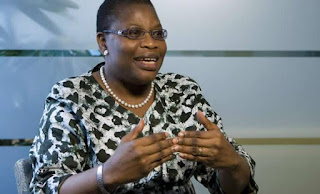Risk pose for students using video chat including sexual image
A survey of 40,000 children aged seven to 16 found a quarter had used the services. On video chats, 10% had been asked to remove their clothes.
The NSPCC says groomers can record the abuse and use it to blackmail victims.
The home secretary has "demanded" tech giants take online abuse seriously.
One child, "Ben", tried to take his own life after being blackmailed for sexual images shared between six men.
It began when he was tricked into thinking he was speaking to a female friend-of-a-friend.
Three weeks later, the person revealed himself to be a man, and - blackmailing him and threatening to kill his parents - coerced Ben into sending sexual images and performing sex acts live over video chat.
'I felt helpless'
"This man had spent weeks pretending to be a girl and finding out information about every part of his life," Ben's father told the Victoria Derbyshire programme.
"He knew who his family were - nans, brothers, sisters.
"He knew what school Ben went to. Everything. They find out everything to use this information to manipulate you."
The images and videos sent by Ben to the man were then shared with five other men, who bombarded Ben with further demands.
"He just felt helpless and didn't know what to do," his father said. "He was a different child but we didn't know why."
After two years of meeting these demands, Ben attempted to take his own life - leading the abuse to be uncovered. The main perpetrator was later jailed for four-and-a-half years.
The family says the effect has been devastating.
"You don't see it coming," his father said. "And when it does, your world falls apart and it's so hard to get that back to how you were - to a really close, loving [family], doing everything together.
"He won't go out, he doesn't play sport anymore. He's not the child he was."
Some 19% of primary school children surveyed had live-streamed
The NSPCC survey - the first of its kind - suggests use of video chats and live-streaming among children has risen rapidly.
Some 29% of secondary school children have broadcast themselves online according to the findings - almost three times a previous estimate, by Ofcom, that suggested one in 10 children aged 12 to 15 had live-streamed.
The charity said the rise was likely to be down to the introduction of live-streaming capabilities on some of the biggest social media platforms.
The NSPCC said it was now calling on the government to create an independent regulator to force social networks into introducing measures that make children safer.
Of the children surveyed who had video-chatted with someone they had not met, one in 10 had been asked to get undressed.
Some 19% of primary school children surveyed had live-streamed, with 8% of those saying that another person live-streaming was semi-naked at the time.
One girl, aged 10-11, told the charity: "My friend was doing a live-stream and an adult man was asking for her to video request him, so she did and he showed his private parts."
Another girl, aged 11-12, said while on video chat "this man was pulling, touching, and showing his privates".
'Really disturbing'
Peter Wanless, NSPCC chief executive, said the popularity of live-streaming meant children were "being pressured into going along with situations that make them feel uncomfortable.
"What's really disturbing is that groomers can then screenshot or record live-streamed abuse, and use it to blackmail the child or share it with others."
In September, Home Secretary Sajid Javid warned he would "not be afraid to take action" against tech giants if they did not help to tackle child sexual abuse online.
Mr Javid said he was "demanding" companies take "more measures" - or face new legislation.
He added that some sites were refusing to take online abuse seriously - and highlighted live-streaming of child abuse as a growing problem.
The NSPCC says groomers can record the abuse and use it to blackmail victims.
The home secretary has "demanded" tech giants take online abuse seriously.
One child, "Ben", tried to take his own life after being blackmailed for sexual images shared between six men.
It began when he was tricked into thinking he was speaking to a female friend-of-a-friend.
Three weeks later, the person revealed himself to be a man, and - blackmailing him and threatening to kill his parents - coerced Ben into sending sexual images and performing sex acts live over video chat.
'I felt helpless'
"This man had spent weeks pretending to be a girl and finding out information about every part of his life," Ben's father told the Victoria Derbyshire programme.
"He knew who his family were - nans, brothers, sisters.
"He knew what school Ben went to. Everything. They find out everything to use this information to manipulate you."
The images and videos sent by Ben to the man were then shared with five other men, who bombarded Ben with further demands.
"He just felt helpless and didn't know what to do," his father said. "He was a different child but we didn't know why."
After two years of meeting these demands, Ben attempted to take his own life - leading the abuse to be uncovered. The main perpetrator was later jailed for four-and-a-half years.
The family says the effect has been devastating.
"You don't see it coming," his father said. "And when it does, your world falls apart and it's so hard to get that back to how you were - to a really close, loving [family], doing everything together.
"He won't go out, he doesn't play sport anymore. He's not the child he was."
Some 19% of primary school children surveyed had live-streamed
The NSPCC survey - the first of its kind - suggests use of video chats and live-streaming among children has risen rapidly.
Some 29% of secondary school children have broadcast themselves online according to the findings - almost three times a previous estimate, by Ofcom, that suggested one in 10 children aged 12 to 15 had live-streamed.
The charity said the rise was likely to be down to the introduction of live-streaming capabilities on some of the biggest social media platforms.
The NSPCC said it was now calling on the government to create an independent regulator to force social networks into introducing measures that make children safer.
Of the children surveyed who had video-chatted with someone they had not met, one in 10 had been asked to get undressed.
Some 19% of primary school children surveyed had live-streamed, with 8% of those saying that another person live-streaming was semi-naked at the time.
One girl, aged 10-11, told the charity: "My friend was doing a live-stream and an adult man was asking for her to video request him, so she did and he showed his private parts."
Another girl, aged 11-12, said while on video chat "this man was pulling, touching, and showing his privates".
'Really disturbing'
Peter Wanless, NSPCC chief executive, said the popularity of live-streaming meant children were "being pressured into going along with situations that make them feel uncomfortable.
"What's really disturbing is that groomers can then screenshot or record live-streamed abuse, and use it to blackmail the child or share it with others."
In September, Home Secretary Sajid Javid warned he would "not be afraid to take action" against tech giants if they did not help to tackle child sexual abuse online.
Mr Javid said he was "demanding" companies take "more measures" - or face new legislation.
He added that some sites were refusing to take online abuse seriously - and highlighted live-streaming of child abuse as a growing problem.




Comments
Post a Comment